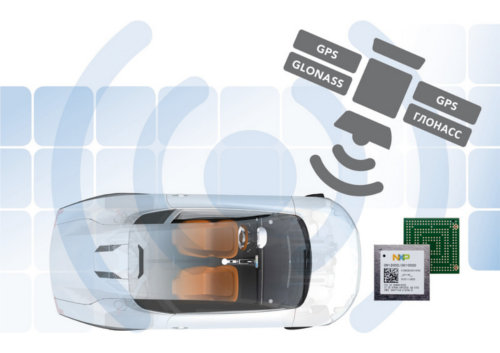Enables automotive telematics suppliers to quickly upgrade to GLONASS compatibility and avoid import tax.
NXP Semiconductors introduced GloTOP 2.5G, the latest addition to the company’s ATOP family of telematics solutions. GloTOP is an automotive telematics module specifically designed to work with the Russian GLONASS satellite navigation system. Featuring a parallel reception system for both GLONASS and GPS, GloTOP is able to automatically select the most optimal signal at any one time to always ensure the most accurate positioning. It also enables the quick and easy integration of telematics applications in vehicles accessing this satellite system.

Most importantly for car manufacturers, GloTOP is pin-to-pin and software compatible with NXP’s existing ATOP solutions, which means that the board can be easily and cost-effectively swapped out. This is crucial for telematics on-board unit manufacturers looking to sell into the Russian market, as it looks likely that a significant import tax will be levied on vehicles that do not support the GLONASS system. GLONASS has also recently been adopted as a standard in India, which makes GloTOP beneficial to car makers additionally selling into this market.
Uniquely integrating GLONASS, GPS, GSM and NFC functionality into a single package, GloTOP enables multiple telematics applications – such as congestion avoidance, on-board diagnostics and fleet management. They can run in parallel without the need for additional modules, which significantly reduces complexity. It also eases the development of these applications through its support of Java, a high level and flexible programming language.
As with other ATOP solutions, GloTOP also has hardware-level security built into the product from scratch, another unique feature within the telematics industry. This is important to ensure optimum privacy protection of vehicle passengers.
One of the key applications that will run on GloTOP is an automatic emergency alert capability – similar to Europe’s ‘eCall’ system – which is planned to become mandatory in any new cars in Russia from 2015. In the event of a serious accident, the device would automatically call the nearest emergency service. It will transmit a minimum set of data to the rescue service including geographic location, dramatically reducing rescue response times and ultimately save lives.
